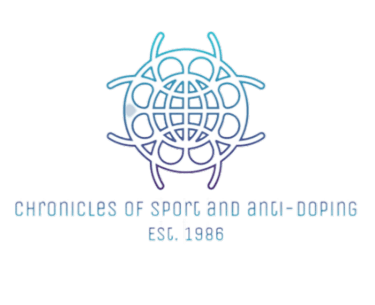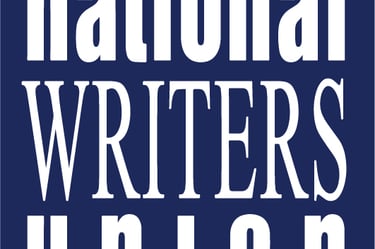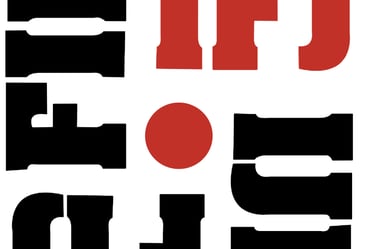The Importance of Anti-Doping Controls in Athletics


The importance of anti-doping controls in athletics cannot be overstated. The integrity of the sport relies on fair competition, and doping undermines the principles of fairness and equality. Athletes who use performance-enhancing drugs gain an unfair advantage over their competitors, compromising the credibility of the sport and the achievements of clean athletes.
The World Athletics Council's call to strengthen anti-doping controls in Brazil, Ecuador, Peru, and Portugal is a proactive step towards ensuring a level playing field for all athletes participating in the Paris Olympic Games. Out-of-competition testing plays a crucial role in detecting and deterring doping practices, as it allows for surprise testing when athletes are not expecting it. This type of testing is particularly effective in catching athletes who may be using substances that are difficult to detect during in-competition testing.
The recommendation made by the Athletics Integrity Unit (AIU) highlights the need for these four nations to enhance their anti-doping efforts. It is essential for all countries to have robust anti-doping programs in place to maintain the integrity of the sport and protect the health and well-being of athletes. By implementing stricter controls and increasing the frequency of out-of-competition testing, these nations can send a strong message that they are committed to clean sport.
Anti-doping controls not only serve to catch athletes who may be using prohibited substances but also act as a deterrent. The fear of getting caught and facing severe consequences, such as bans and loss of medals, can dissuade athletes from resorting to doping. Moreover, the existence of comprehensive anti-doping programs instills confidence in athletes, spectators, and sponsors, ensuring that the sport remains credible and attractive.
It is important to recognize that anti-doping controls should not be limited to elite athletes or major sporting events. Doping can occur at all levels of competition, and therefore, anti-doping efforts should extend to grassroots sports as well. By promoting a culture of clean sport from the grassroots level, young athletes can develop a strong ethical foundation and understand the importance of fair play.
In conclusion, the World Athletics Council's call for stronger anti-doping controls in Brazil, Ecuador, Peru, and Portugal is a significant step towards preserving the integrity of athletics. Robust anti-doping programs, including regular out-of-competition testing, are crucial in maintaining fair competition and protecting the values of the sport. By prioritizing clean sport, these nations can contribute to the credibility and long-term sustainability of athletics on a global scale.
The AIU plays a crucial role in promoting and enforcing anti-doping measures in athletics. Its primary objective is to protect the rights of clean athletes and maintain the integrity of the sport. To achieve this, the AIU works closely with national federations to ensure that they have robust anti-doping programs in place. One of the key responsibilities of the AIU is to monitor and assess the anti-doping programs implemented by national federations. This involves evaluating the effectiveness of their testing protocols, which includes the frequency and comprehensiveness of the tests conducted. The AIU also examines the procedures followed by the federations in collecting and handling samples, as well as the accuracy and reliability of the testing methods used. In addition to monitoring and assessment, the AIU also plays a vital role in education and awareness. It works towards educating athletes, coaches, and support personnel about the dangers and consequences of doping, as well as the importance of clean competition. The AIU conducts outreach programs, workshops, and seminars to ensure that all stakeholders in athletics are well-informed about anti-doping regulations and the measures in place to detect and deter doping. Furthermore, the AIU is responsible for investigating any potential anti-doping rule violations. It has the authority to conduct inquiries, gather evidence, and impose sanctions on athletes found guilty of doping offenses. The AIU's investigative team consists of experts in various fields, including law enforcement, forensic science, and anti-doping intelligence. They work diligently to uncover any instances of cheating or unfair advantage and take appropriate action to maintain the integrity of the sport. Overall, the Athletics Integrity Unit plays a crucial role in the fight against doping in athletics. Through its monitoring, assessment, education, and investigative efforts, it strives to create a level playing field for athletes and ensure that the sport remains clean and fair. Its commitment to upholding the integrity of athletics is essential in maintaining the trust and confidence of athletes, fans, and the wider sporting community.The Failure to Conduct Sufficient Out-of-Competition Tests
In the case of Brazil, Ecuador, Peru, and Portugal, the AIU found that these federations had not conducted an adequate number of out-of-competition tests on their teams. Out-of-competition testing is a crucial component of any effective anti-doping program as it allows for the detection of banned substances or performance-enhancing methods that may not be easily detectable during in-competition testing.
Out-of-competition testing is particularly important as it serves as a deterrent to athletes who may be tempted to use prohibited substances or methods in their preparations for major competitions. By conducting random tests during periods when athletes are not expecting to be tested, the element of surprise is maintained, and the risk of detection is increased.
According to the AIU, a total of 8,466 out-of-competition and in-competition anti-doping tests were carried out in the 10 months leading up to the Budapest World Championships. While this is a significant number, it is crucial that all participating nations fulfill their responsibilities in conducting an appropriate number of tests on their athletes.
Failure to conduct sufficient out-of-competition tests can have serious consequences for the integrity of the sport. It not only undermines the efforts of clean athletes but also creates an unfair playing field where those who are willing to take risks with banned substances or methods have an advantage over their competitors. This is why international sports federations, such as the AIU, have put in place regulations and guidelines to ensure that all participating nations adhere to a standard level of testing.
When a federation fails to meet the required number of out-of-competition tests, it raises questions about their commitment to fair play and the fight against doping. It suggests a lack of resources, negligence, or even a deliberate attempt to avoid catching athletes who may be using banned substances or methods. Regardless of the reason, such failures undermine the credibility of the sport and erode the trust of athletes, fans, and sponsors.
Moreover, the lack of sufficient out-of-competition testing can also have long-term consequences for the health and well-being of athletes. By not detecting and deterring the use of banned substances or methods during training periods, athletes may be putting their health at risk. The use of performance-enhancing drugs can have serious side effects, both immediate and long-term, which can impact an athlete's overall well-being and even their life beyond sports.
It is, therefore, imperative that federations take their responsibilities seriously and allocate sufficient resources to conduct a comprehensive anti-doping program. This includes not only the number of tests conducted but also the quality and effectiveness of the testing methods used. The AIU, along with other anti-doping organizations, continuously works towards improving testing techniques and staying ahead of new doping trends to ensure a level playing field for all athletes.
In conclusion, the failure to conduct sufficient out-of-competition tests is a serious issue that compromises the integrity of sports and puts the health and well-being of athletes at risk. It is essential for all participating nations to fulfill their responsibilities and commit to a robust anti-doping program that includes an appropriate number of tests conducted during training periods. Only by doing so can we maintain the fairness and credibility of sports and protect the rights of clean athletes.
To further strengthen the anti-doping controls for the Paris Olympic Games, it is imperative that the federations of Brazil, Ecuador, Peru, and Portugal collaborate closely with the Athletics Integrity Unit (AIU). The AIU, as the independent body responsible for safeguarding the integrity of athletics worldwide, plays a crucial role in ensuring that anti-doping measures are implemented effectively and consistently. One of the key areas that these federations should focus on is increasing the number of out-of-competition tests conducted on their athletes. While in-competition testing is essential, out-of-competition testing is equally important as it can detect the use of banned substances or performance-enhancing methods that may not be detectable during competition. By conducting a sufficient number of out-of-competition tests, these federations can significantly reduce the chances of athletes evading detection and maintain a level playing field for all competitors. In addition to testing, education and awareness programs should be enhanced to ensure that athletes are well-informed about the dangers of doping and the importance of clean sport. By providing comprehensive education, athletes can make informed decisions and understand the potential consequences of using banned substances. Furthermore, these programs should not only target athletes but also coaches, support staff, and officials who play a crucial role in creating a culture of clean sport. Furthermore, it is vital that any potential anti-doping violations are dealt with swiftly and effectively. This includes conducting thorough investigations, imposing appropriate sanctions on athletes who are found guilty, and ensuring that the appeals process is fair and transparent. By taking decisive action against those who violate anti-doping rules, these federations can demonstrate their commitment to upholding the integrity of the sport and send a strong message that cheating will not be tolerated. To achieve these goals, the federations should allocate sufficient resources to their anti-doping programs. This includes investing in state-of-the-art testing facilities, hiring qualified personnel, and collaborating with international anti-doping organizations to exchange knowledge and best practices. By doing so, these federations can build a robust anti-doping infrastructure that can effectively detect and deter doping in athletics. In conclusion, the Paris Olympic Games require strong anti-doping controls to ensure fair play and integrity. By working closely with the AIU, increasing out-of-competition testing, enhancing education programs, and taking decisive action against violators, the federations of Brazil, Ecuador, Peru, and Portugal can demonstrate their commitment to clean sport. Only by prioritizing the well-being of athletes and upholding the integrity of the sport can the Paris Olympic Games be a true celebration of human achievement and sportsmanship.Another key aspect in the global fight against doping in athletics is the establishment of robust and independent anti-doping organizations in each country. These organizations are responsible for implementing and enforcing anti-doping policies at the national level.
One of the challenges faced by these organizations is the lack of resources and funding. Adequate funding is crucial to ensure that comprehensive anti-doping programs can be implemented, including regular and random testing, education programs, and research initiatives. Without sufficient resources, it becomes difficult to effectively detect and deter doping practices.
Moreover, the issue of doping goes beyond just the athletes themselves. It involves a complex network of individuals and organizations, including coaches, trainers, agents, and even sponsors. Therefore, it is important to hold all parties accountable for their actions and ensure that there are severe consequences for those involved in doping activities.
Another area that requires attention is the development and implementation of advanced testing methods. As technology advances, so do the methods used by dopers to evade detection. Therefore, it is crucial for anti-doping organizations to stay ahead of the curve by continually improving testing methods and investing in research and development.
International collaboration is also vital in the fight against doping. The sharing of information, best practices, and intelligence between different countries and organizations can help identify trends and patterns in doping practices, leading to more effective prevention and detection strategies.
Lastly, public perception and awareness are crucial in the fight against doping. It is important to educate the general public about the negative impact of doping on the integrity of sport and the health of athletes. By raising awareness and promoting a culture of clean sport, we can create a society that values fair competition and rejects doping in all its forms.




